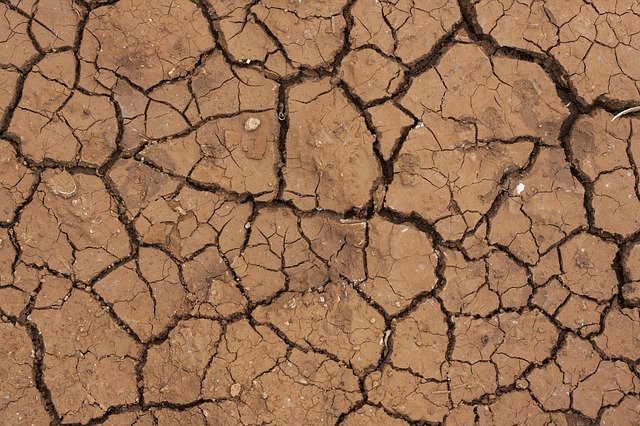
The Economic Effects of Climate Change
Read a summary using the INOMICS AI tool
The history of economic growth, the kind to which we are now accustomed, is inseparably intertwined with the discovery, and then plunder, of fossil fuels. Some historians have even argued their unearthing was its main catalyst, relegating more popular theories of free trade and technological innovation. The argument is seductively simple, and although something of an exaggeration, usefully highlights the strong connection between the two – for in tandem, they radically altered the course of human civilisation.
Powering the West’s rise from provincial backwater to global force, they permitted Europeans, for the first time in hundreds of years, to experience better living standards than their forebears. More recently, coal-based growth also became an obsession of developing countries, notably China and India, where, in the latter half of the 20th-century industrialisation advanced at breakneck speed, lifting billions out of extreme poverty.
Herein lies the great irony. As a result of climate change, these previously poverty-alleviating forces now look set to plunge those billions, those who have just extracted themselves from subsistence living, back to the brink. And such is the speed of the change and our reluctance to address, and in some cases even accept it; the return could be made in less than a generation. Although in areas better prepared, the West, too, stands to suffer greatly, the consequences of climate deterioration destined to afflict indiscriminately, ignorant of national borders. The last year provided a taste of things to come, as North America was subjected to droughts, hurricanes, and forest fires, of sizes and severity previously unknown, leaving parts of the continent ravaged. And there will be no let-up; the regularity of such events is set to increase. The only question is: how far will humanity let things slide?
 GDP set to plummet
GDP set to plummet
In terms of GDP, the devastation that awaits is on a scale that exceeds what is currently economically conceivable. As David Foster Wells has so eloquently explained, the spectrum of growth with which we have any experience, and thus can realistically fathom, ‘stretches from contractions of about 15%, effects we study still in histories of the Depression, to growth about half as fast – about 7%’. Quite simply, today’s terminology and categories are not really capable of reflecting developments outside of these parameters. Unfortunately, outside of these parameters is exactly where we are heading.
In one projection – based on the work of respected researchers Solomon Hsiang, Marshall Burke, and Edward Marshall – in which the terms of the Paris Agreement are fulfilled and warming is limited to 2.5-3C, global per capita output is reduced by 15-25% by 2100. For context, this is comparable to, and actually slightly higher than, what was experienced in the 1930s. The difference, however, is that this time around there’s no guarantee a recovery will even be possible. What in today’s economic terms is called a ‘trough’ could become the new economic baseline, the new norm.
In fact, on our current course, we’ll be lucky to even get there: the global emissions trajectory, as it stands, has us comfortably missing the commitments made in Paris. Indeed, with climate-threatening leaders Trump and Bolsonaro presiding over two of the world’s largest polluters, the Paris agreement could soon be considered the high point of climate change consensus – no longer a realistic target, simply a nostalgic reminder of collaborative times gone by.
The Great Dying
The required transformation of energy infrastructure alone would require the mobilisation of people and resources never before seen in peacetime. Warming of 3C, 4C, 5C, or even worse, therefore, remain distinct possibilities and require contemplation – to warn us away from such paths if nothing else. According to the report cited above, 4 degrees, which lies ‘on the low end of the range of warming implied by our current trajectory’, is predicted to cut global output by more the 30%, far more than the Great Recession of 2008, which saw a reduction of 2%, and double that of the Great Depression. Foster-Wells has called this fate the ‘Great Dying’ – if reached things would continue to worsen inexorably.
To grasp the enormity of what awaits, and to inform sensible future conduct, it’s helpful to perceive of our climate as a superstructure within which we operate: we are governed by its rules and forced to adapt to its conditions. When these conditions are degraded the consequential impact infiltrates every aspect of life, as every aspect exists within the structure. From the regulation of bacteria in our bodies and the air we breathe, to our ability to travel the planet unencumbered and access water, literally everything is at stake. The same holds true for our economies, both local and global.
The warming of the globe, and with it, the natural disasters, flooding, and health crises it entails, will incur costs economies will struggle to absorb, many we are already beginning to see. Countries with a large share of GDP in the agriculture sector, as most developing countries do, will especially suffer, because of all industries agriculture has a particularly low resilience against rising temperature. A report published in Nature Communications in 2017 has predicted that as a result of droughts and water shortages, the U.S will see its annual crop yield decrease 40% by the end of the century. In a pattern typical of climate change, things are projected to be far worse closer to the equator. On our present path, and without huge technological advancement, India, sub-Saharan Africa, Brazil, and much of Southeast Asia face the devastation of their agriculture. The UN has predicted that, in turn, this widespread crop depletion will help create 1 billion climate refugees by 2050, placing further pressure on less-damaged agriculture elsewhere.
Then there is flooding. None but the most modern infrastructure is built to withstand the type of relentless flooding that’s coming, and that in parts of the world we’ve already seen glimpses of. America and India are particularly vulnerable, having aggressively and rather carelessly developed their coastlines. In just a matter of years, luxury sea-facing apartment blocks and hotels in places like Miami Beach will soon become underwater relics, while densely populated metropolises like Mumbai, Chennai, and Kolkatta, home to tens of millions, will ‘face catastrophe’, as invading waters cause untold damage. By 2045 the real estate impact on New Jersey alone is predicted to exceed $25 billion. Across the world, flooding in March 2019 – just a single month – created $9 billion in economic losses, highlighting what analyst Michal Lörinc called ‘the continued vulnerabilities which exist in both developed and emerging markets’.
Hurricanes, too, are being created with greater regularity and greater force, rising temperatures increasing their rainfall and wind speeds. Hurricane Florence, which hit the Carolinas in 2018, raged for almost 3 weeks and was estimated to have caused up to $50 billion worth of damage. Without intervention, the regularity of such events will grow, and there will come a time that our inaction will designate when there is simply not enough wealth, locally or globally, to cope. Rebuilding will become a constant state.
Declining productivity
Just as healthy productivity rates will be needed to mitigate the coming chaos, they are stagnating, and, unfortunately, predicted to fall further – this, too, a result of warming temperatures. Research, like that from the Institute of Atmospheric Physics, Chinese Academy of Sciences, has exposed the negative cognitive effects of direct heat, showing, with alarming precision, how unproductive humans are expected to become as the world warms. ‘When global warming reaches 1.5, 2, 3 and 4°C respectively, the average Work Productivity Loss (WPL) will be 9 (19), 12 (31), 22 (61) and 33 (94) days for developed (developing) countries. Countries in Southeast Asia in a 1.5°C-warming world would suffer the same loss as the developed countries would in a 4°C-warming world.’ With every rise in temperature, GDP suffers, and like compound interest, the effects increase over time. Evidently, the costs of acting on climate change are enormous. What’s also clear, though, is that the costs of not acting are far greater. Market logic can no longer be relied on; it shouldn’t be expected to benevolently act on our behalf. Instead, concerted, coordinated and cooperative intervention is needed.
An uncertain future
Given the global political landscape, this feels far-fetched. From those with the power to address climate breakdown, we’re accustomed to bluster and virtue signalling, that is, if its reality is even accepted. The main concern is always the next election, never the next generation. And so carbon continues to be emitted into the atmosphere at record rates. Even with imagery of climate degradation saturating global media, little seems to change. The West, in particular, has been guilty of a ‘thank god its not on my doorstep’ mentality. And yet, it is; it’s on everyone’s. Even to those apparently blind, this will soon become incontrovertible.
As it is, economies across the world stand braced, many already under the strain of climate change. As costs continue to wrack up, as they will without action, some will buckle under the pressure; this we can be assured of. What follows is anyone’s guess. What we do know, though, and what history instructs us, is that finding out is a risky game indeed.
-
- Assistant Professor / Lecturer Job
- Posted 2 weeks ago
Visiting Assistant Professor - Economics
At Boise State University in Boise, USA
-
- Postdoc Job
- Posted 1 week ago
6-Year Postdoc with Option for a PermanentContract (f/m/d, 100%)
At ZEW – Leibniz-Zentrum für Europäische Wirtschaftsforschung GmbH Mannheim in Mannheim, Deutschland
-
- Konferenz
- Posted 1 week ago
Macroeconomic Policy in a Heterogeneous and Imperfectly Rational World - 6th Joint NBP-LB-CEBRA Biennial Conference
Between 24 Sep and 25 Sep in Warsaw, Polen














